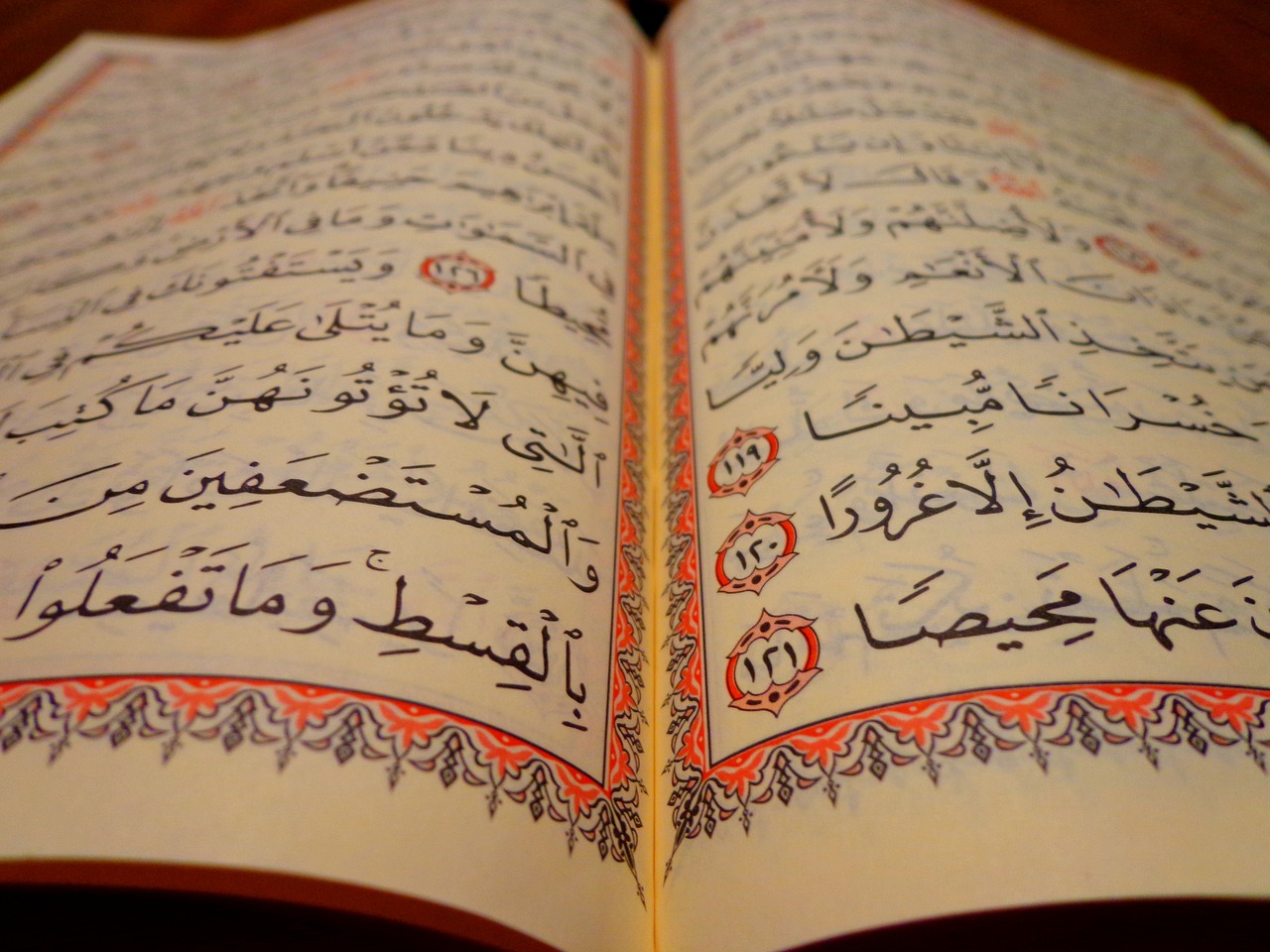
After studying possessive nouns in the Quran, I now have a whole new experience when I pray behind the imam in a masjid. I could detect a possessive noun from the imam recital even when I don’t know the meaning of what is being read. I hope after reading this article you would have a similar experience. It is much better than thinking when is this guy going to finish.
Alright, the possessive phrase or ‘Mudaf Mudaf Ilaihi’ is an important concept in the Quran and is used extensively.
It is a combination of words that show belonging.
An example would be the book of Ahmad or another way of saying it is by switching the order of the word and adding the letter ‘s’ to Ahmad in Ahmad’s book. Both show belonging.
You can either put the things possessed first and then the possessor or the other way around. But in Arabic, there is no such thing as the word ‘of’ or the concept of adding an’ s’ behind a noun to show belonging.
It is really easy that you can really spot it even if you are listening to the imam reciting Quran during prayers. The first thing you need to remember is that in Arabic the thing posses always come first and then followed immediately by the possessor.
Let’s take an Arabic example رَسُلُ اللهِ as you can see there are two words here Rasul and Allah. The first word known as Mudaf must meet 2 conditions and how about the second word? The second word also known as Mudaf Ilaihi has only one condition that it must meet.
Let’s learn the easy part which is the second word. The only condition that the second word has to meet is it must be Jarr which means it normally ends with a kasrah (ee sound). So whenever you see a word with a kasrah it may be a Mudaf Ilaihi. Of course, there is an exception to this but we will deal with later.
This is true only if the word before it fulfills these 2 conditions. The first condition is that the word before the one that has a kasrah sign has to be light. If you don’t remember what light means it’s alright, we will recap.
Click Here to learn more about the MUSLIM CHART
Arabic words are by default are heavy meaning they have the ‘n’ ending sound like Muslimun, Musliman and Muslimin. The light version is without the ‘n’ sound such as Muslimu, Muslima and Muslimi. The second condition is the first word can never have ال (Alif lam) in front of it.
Mudaf and Mudaf Illaih are always, always inseparable, one come immediately after the other.
Shahfizal Musa is the Founder and Managing Editor of Halalop. He graduated with a Law degree from Thames Valley University London. He is an award-winning journalist covering topics such as human trafficking, Muslim research discoveries, and exceptional Muslims.
During the Palestinian Genocide of 2023, there was one man who single-handedly, demolished false propaganda, and rendered seasoned journalists, and… Read More
Imagine this you did nothing wrong, unarmed pinned to the ground, and surrounded by six other heavily armed men that… Read More
What does God want from us Muslims? Somebody ask me. I did not have an answer for him at that… Read More
As a Muslim CEO, you are blessed with certain privileges and chosen to lead people. A transformation process that ultimately… Read More
Istanbul, where two continents converge, is also the location of several extremely unique Ramadan customs. Ramadan, known in Turkish culture… Read More
The "Arabian Business Secrets of Arabs" have long been a topic of interest, both within the Arab world and beyond.… Read More
This website uses cookies.